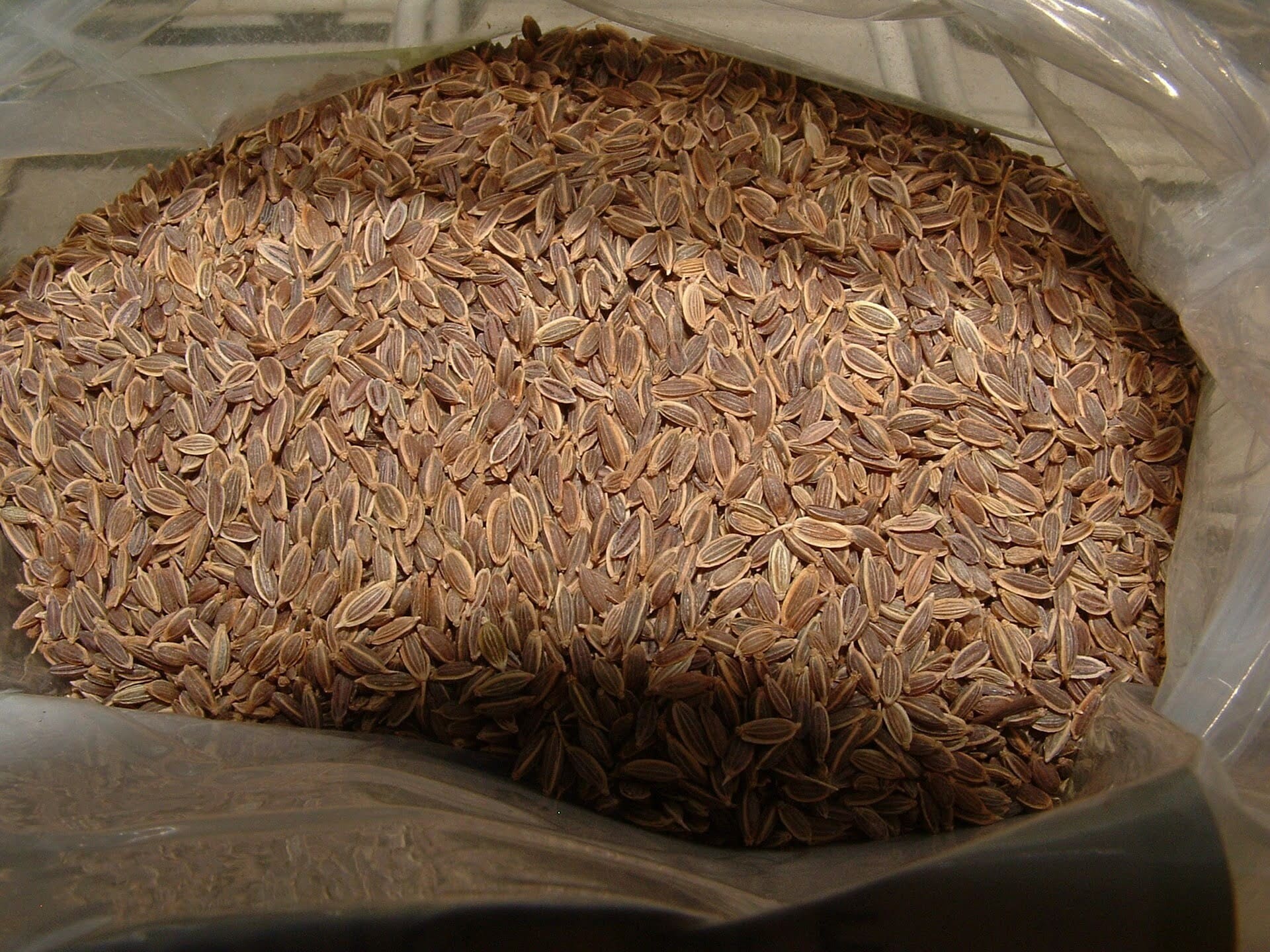Dill seeds, often overshadowed by their leafy counterpart, are an aromatic and flavourful spice used in cuisines and remedies worldwide. Derived from the Anethum graveolens plant, dill seeds boast a unique flavour profile and a variety of health benefits. Here’s an in-depth look at these versatile seeds.
Origins and Characteristics
Native to the Mediterranean and southern Russia, dill has been cultivated for thousands of years. Dill seeds are flat, oval, and brown, with a warm, slightly citrusy taste and a hint of caraway. These seeds are harvested from the mature dill plant and are distinct from the fresh dill leaves, or “dill weed,” often used in garnishing.
Culinary Uses
Dill seeds are a versatile ingredient in global cuisines:
- Pickling: A classic use, dill seeds are an essential flavouring in pickles, especially cucumber pickles, lending their tangy, herbaceous note.
- Breads and Crackers: Commonly used to season rye bread and savoury biscuits.
- Spice Blends: They feature in blends like Indian panch phoron and Scandinavian gravlax marinades.
- Stews and Soups: Add depth to hearty soups, borscht, and fish dishes.
- Beverages: Dill seeds are often infused into teas for digestive benefits.
To enhance their flavour, toast dill seeds lightly before grinding or adding them to your dish.
Health Benefits
Dill seeds are more than just a culinary delight; they’re packed with nutrients and medicinal properties:
- Digestive Health: Dill seeds have been traditionally used to ease bloating, cramps, and indigestion. They stimulate the production of digestive enzymes and help maintain gut health.
- Anti-inflammatory Effects: Rich in antioxidants, dill seeds help combat inflammation and protect cells from oxidative stress.
- Bone Health: They are a good source of calcium, which supports bone strength and health.
- Respiratory Relief: Known for their carminative properties, dill seeds can help soothe respiratory issues, such as coughs and colds.
- Anti-microbial Properties: Dill seeds contain compounds like carvone and limonene, which have natural antimicrobial effects.
How to Use Dill Seeds in Your Diet
- Add them to homemade salad dressings or marinades for a tangy twist.
- Sprinkle crushed dill seeds over roasted vegetables or potatoes.
- Brew dill seed tea by steeping 1 teaspoon of seeds in hot water for 10 minutes.
- Use them as a seasoning for seafood or in savoury rice dishes.
Precautions
While dill seeds are generally safe, they may cause allergic reactions in some individuals. If you are pregnant or breastfeeding, consult your doctor before consuming large amounts, as dill seeds may have mild uterine-stimulating properties.
Conclusion
Whether you’re spicing up a pickle jar or seeking natural digestive relief, dill seeds are a small but mighty addition to your pantry. Their unique flavour and health-promoting qualities make them an indispensable spice for both culinary and medicinal purposes.
What’s your favourite way to use dill seeds? Let us know in the comments below!


